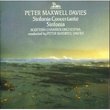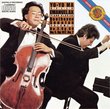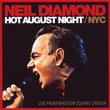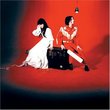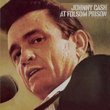| All Artists: Bill Evans, Jim Hall Title: Undercurrent Members Wishing: 5 Total Copies: 0 Label: Blue Note Records Original Release Date: 1/1/1962 Re-Release Date: 7/16/2002 Album Type: Original recording reissued, Original recording remastered Genres: Jazz, Pop Style: Number of Discs: 1 SwapaCD Credits: 1 UPCs: 724353822828, 724353822859 |
Search - Bill Evans, Jim Hall :: Undercurrent
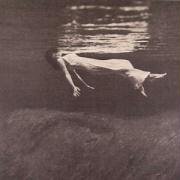 | Bill Evans, Jim Hall Undercurrent Genres: Jazz, Pop
Duet albums were rare in 1962 and encounters of this quality are still rare. Bill Evans and Jim Hall, two modern jazz giants, were in peak creative form at the time, Evans leading his own trio and Hall working with Sonny R... more » |
Larger Image |
CD DetailsSynopsis
Album Description Duet albums were rare in 1962 and encounters of this quality are still rare. Bill Evans and Jim Hall, two modern jazz giants, were in peak creative form at the time, Evans leading his own trio and Hall working with Sonny Rollins's quartet at the time. These two masters challenge and complement each other brilliantly on a series of standards and jazz originals. Newly remixed and remastered in 24 bit, this new edition of Undercurrent, which contains two more tunes (tracks 7 & 8) and two alternate takes (tracks 9 & 10) added to the original United Artists album, sound exceptional. Similar CDsSimilarly Requested CDs
|
CD ReviewsA Revelation! glen bergman | Winnipeg, Canada | 09/02/2002 (5 out of 5 stars) "If you have the previous cd version of this album, you have to check this remastered version out. I have enjoyed the sonic improvements on a lot of recent remasters of older jazz recordings. In this case the remaster doesn't just sound "better", but actually sounds like a completely different recording. The piano on the first cd issue is quite forward, with the left hand panned to the left, and the right hand panned to the right of the sound stage. The guitar is centered, sounding a little behind the two "halves" of the piano. On the new remaster, the piano sounds like one instrument in space, but considerably further back in the soundstage. The guitar is still centered, but a touch more forward and more clearly presented. The result of these sonic changes is a revelation. The logic and emotion of the communication between these two incredible musicians is revealed in a completely different and astonishing way. On the first cd Evans appears to be sharing intimate ideas of importance at all times, made up of detailed notions that follow each other in "strings". Hall weaves into the strings for several sections of each tune, to add a sort of counterpoint to what Evans is saying. On the new remaster Evans now shares not strings of ideas, but coherent, moving themes. It is also naturally evident when he is supporting Hall, and when he is taking the lead voice in the discussion. When Hall plays, he is no longer playing clever counterpoint, but is making very flowing and astonishingly beautiful statements of his own. The music is so drastically altered by the changes in mastering here that the two cd versions have virtually nothing in common. I look forward to other Bill Evans fans comments on this release. I'm going out on a limb, and suggesting this musical meeting was one of the true great ones in jazz recording. Five stars is not enough." Inexhaustible music--one of the year's best reissues. Samuel Chell | Kenosha,, WI United States | 12/29/2002 (5 out of 5 stars) "Listeners might be forgiven for expecting a lot from a pairing of Bill Evans and Jim Hall. Not to worry. The album more than repays the investment (unlike the disappointing meeting between Bill and Stan Getz). One of the highlights is the up-tempo treatment of "My Funny Valentine" which, given its harmonies, makes complete musical sense. Moreover, the "alternate take" of the tune provides, if anything, a fresh and welcome perspective on Bill, who eschews the implied left-hand rhythm of the first version in favor of a masterfully-constructed, contagiously-swinging walking bass line (no comparable moment in Evans' vast discography comes to mind).Thank goodness Blue Note thought to reissue the session (thankfully, too, capturing the sound of the piano was not left to Van Gelder). As for the vastly superior audio mixing of this edition to the original, I refer you to the previous reviewer's testimony. I will say that the album cover is one of the most evocative I've ever seen--sort of a variation on Millais' "Ophelia" as seen from below." Inventing (and perfecting) a Jazz Format Michael E. Bieniek | 11/16/2006 (5 out of 5 stars) "While there is some precedent in early blues records for the piano/guitar format(Scrapper Blackwell and Leroy Carr come to mind), Bill Evans and Jim Hall are THE innovators for this instrumentation in jazz - their achievements on "Undercurrent" and "Intermodulation" established the standard by which subsequent piano/guitar sessions, including those of Joe Pass and Oscar Peterson ("a Salle Pleyel"); Joe Pass and Jimmy Rowles ("Checkmate"); Bill Frisell and Fred Hersch ("Songs We Know"); John Abercrombie and Andy LaVerne ("Timeless", "A Nice Idea", "Nosmo King"); and, in some tangential way, Cecil Taylor and Derek Bailey (On FMP's 1988 11 CD Cecil Taylor in Berlin release), are judged.
In their duet recordings, Evans and Hall first grappled successfully with some very tough issues that arise in piano/guitar duets - in this context, it can be very difficult to keep the instruments from stepping on each other's lines, but Evans and Hall each manage to carve out independent roles for themselves that each contribute to a very cohesive whole. To my ear, Evans is at the top of his game during these sessions, while Hall was only beginning to develop into the master that he is today (This is not to denigrate Hall's acheivement, but to point out that a great player then became substantially more accomplished over the next 40 years). From that perspective, these are Evans' sessions - his voicings, solos and accompaniments in these sessions outshine Hall's, and I can almost feel Evans accommodating some of Hall's less successful strategies. Still, the sum of their contributions is a beautiful, subtle mosaic of wonderful, meditative versions of standards. It is instructive to compare the Evans/Hall sessions to some of the others mentioned above. Joe Pass and Jimmy Rowles come closest to duplicating the chemistry of the Evans/Hall sessions, except that Pass dominates "Checkmate" in the way that Evans dominates "Undercurrent". Pass and Peterson are almost too accomplished as soloists to cooperate on duets - their duets, which come after each plays a number of solo pieces, sound more like simultaneous solos that cooperative undertakings (although I can hear them smiling while they're playing). Frisell and Hersch create - what? sound tapestries? - that are not quite as experimental as the songs that Frisell was making with other bands at the time, but not quite as interesting, either - almost as if they were hampered by sticking to standards rather than playing in the genres they are most familiar with. The most interesting comparison is to the Abercrombie/LaVerne recordings "Timeless" and "A Nice Idea". These sessions include a substantial number of the tunes that Evans and Hall recorded, but they are executed by musicians who are much later in their careers than Evans and especially Hall were at the time of the "Undercurrent" and "Intermodulation" sessions. Abercrombie applies a very modern harmonic system to the tunes, using scales and substitutions that were simply not used in the early 60's. While Hall used a standard Gibson hollowbody guitar that produced at easily recognizable tone, Abercrombie uses custom built guitars and sophisticated electronics to create a very distinctive, although much more synthetic, tone. On many of the Evans/Hall songs, Hall uses full chord strumming to accompany Evans - Abercrombie walks bass lines while simultaneously playing fills and chords to create a more textured context for LaVerne's solos. LaVerne, on the other hand, plays in a style that is very reminiscent of Evans throughout these discs - that's hardly a criticism, except that where Evans, Hall and Abercrombie are reaching new heights in the form, LaVerne is maintaining a very high quality status quo. How to rate these albums? "Undercurrent" and "Intermodulation" get five stars for getting there first and remaining beautiful after all these years. "Checkmate", "a Salle Pleyel" and "Songs We Know" are wonderful, but do not acheive the level of innovation of the Evans/Hall sessions. And Abercrombie and LaVerne have, to my ear, pushed the envelope of mainstream piano/guitar duets even further, and get five stars for doing so. As to Cecil Taylor and Derek Bailey - well, that's not really a standards disc, is it?" |

 Track Listings (10) - Disc #1
Track Listings (10) - Disc #1
